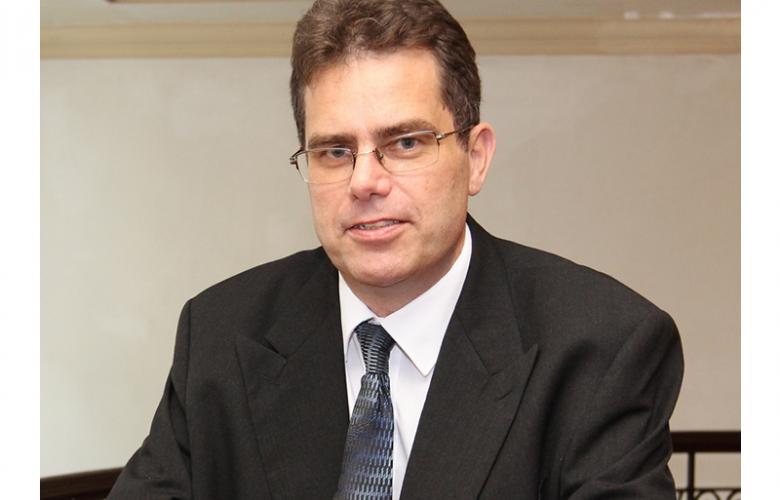Get to know Tony Picon Founder & Director Colliers International Myanmar
Contact
Get to know Tony Picon Founder & Director Colliers International Myanmar
WILLIAMS MEDIA spoke to Tony Picon about his experience working in Myanmar's property market.
Following years of experience in the real estate markets of Vietnam and Thailand, Tony Picon moved to Yangon in 2012, and in 2013 established Collier’s Myanmar office - the first international real estate consultant to enter the Myanmar market. Determined to play a part in helping move the country forward, Tony was the inaugural president of the British Chamber of Commerce in Myanmar, set up in mid-2014. The organisation now boasts nearly 200 companies.
How did you get into the real estate industry?
I worked for a real estate company in Vietnam checking their reports and studies. Later I was offered a position running their research department in Ho Chi Minh City.
What are some of your career highlights from your time in the industry?
My main achievements have been in the field of exploring and entering new markets. In Thailand, as head of research for Colliers I created the first real estate reports for a number of coastal areas like Hua Hin and Samui. I authored the first ever report on real estate in Laos, covering Vientiane. Later we looked at Myanmar and produced the first ever comprehensive report for Yangon in 2011. Going one step further I established Colliers International Myanmar and we are now the only international real estate consultant operating in the country. On top of that I was the first President of the British Chamber of Commerce in Myanmar when we established in 2014. So, it has been a rather eventful past few years.
What are the biggest issues facing the industry in your market at the moment?
Simply that Myanmar is a frontier market with many challenges in terms of financial institutions, infrastructure, human capacity, legal framework. Investors and businesses setting up here should be under no illusions about the difficulties of doing business here. However, those companies willing to accept and deal with these issues can prosper.
How has the industry changed in the time you have been involved with it?
The entry of foreigners in all aspects of real estate has shaken the local businesses quite dramatically. Prior to 2011 most people connected with real estate in Myanmar were largely unaware of regional and global trends and had no real benchmarks for what constituted quality in real estate developments. Overall standards had been very poor and many buildings looked quite old and run down even after a few years. Since then some have grasped the new landscape and we are starting to witness enormous improvements and successful collaboration with foreign players. Others still cling to the old ways and will begin to diminish as the market opens up further.
What changes would you like to see over the next two to five years in the industry?
A better regulatory environment for the industry would allow for greater clarity. A new investment law and companies law will go some way to address this but further improvements in registration of land title, reduction in stamp duties, an easing of onerous parking requirements for the condominium sector and further liberalisation of the financial sector will help bring further confidence for investors, especially institutional ones which usually require better governance.
What advice do you have for people who are just starting out in similar careers?
In Myanmar, there are enormous opportunities in many sectors as the country embarks on expected rapid growth over the coming years. You just need to accept the challenges of living and working in the country as the lifestyle is not the same as what you could expect in Bangkok or Singapore. But the chance to further one's career is a great attraction to come here and play a real part in helping move the country forward.
What do you believe is a unique factor of doing business in your market?
It's big and its new.
What is your favourite holiday destination in Asia?
I like to travel around the Philippines and the fairly out of the way beach locations. But Myanmar could be as better infrastructure helps opens up the wonderful beaches.
What’s your outlook for your sector/s for the next 12 months?
Overall the industrial sector is the best performer and this bodes well for the economy as a whole. Build a factory and you have say 1,000 jobs for 50 years. Main areas are logistics, garment/footwear and manufacturing supplying the local population as a form of import substitution. Significant growth has occurred in many industrial estates in Yangon over the past few years.
The retail sector is still strong with further growth in destination malls. The office market is reasonable as lower rentals are leading to a switch from non-traditional space like villas to dedicated office buildings. Long anticipated liberalisation of the insurance sector should help propel demand. Serviced apartment sector is robust given the fundamental weakness in the condo sector. Hotel market is challenging in Yangon due to oversupply in higher end categories. The condo market remains poor while onerous car parking requirements stunt supply of affordable smaller units.
Where would your next purchase be?
A condo in Bangkok. Basically, Bangkok for me is a place to go every few weeks to relax and recharge the batteries for the weekend and sometimes for business trips and is just an hour from Yangon. I prefer a place in upper Sukhumvit with its own vibrant local scene and away from the tourist locations but still a short BTS (skytrain) ride away. I miss good public transport and retail options which are severely lacking in Yangon at the moment.
For more information about the Myanmar property market email Tony Picon via the contact details below.
More from Tony and Colliers Myanmar:
Landlords face new competition ahead in the Yangon serviced apartment market
New supply to bolster pressure in the Yangon upper scale hotel market







